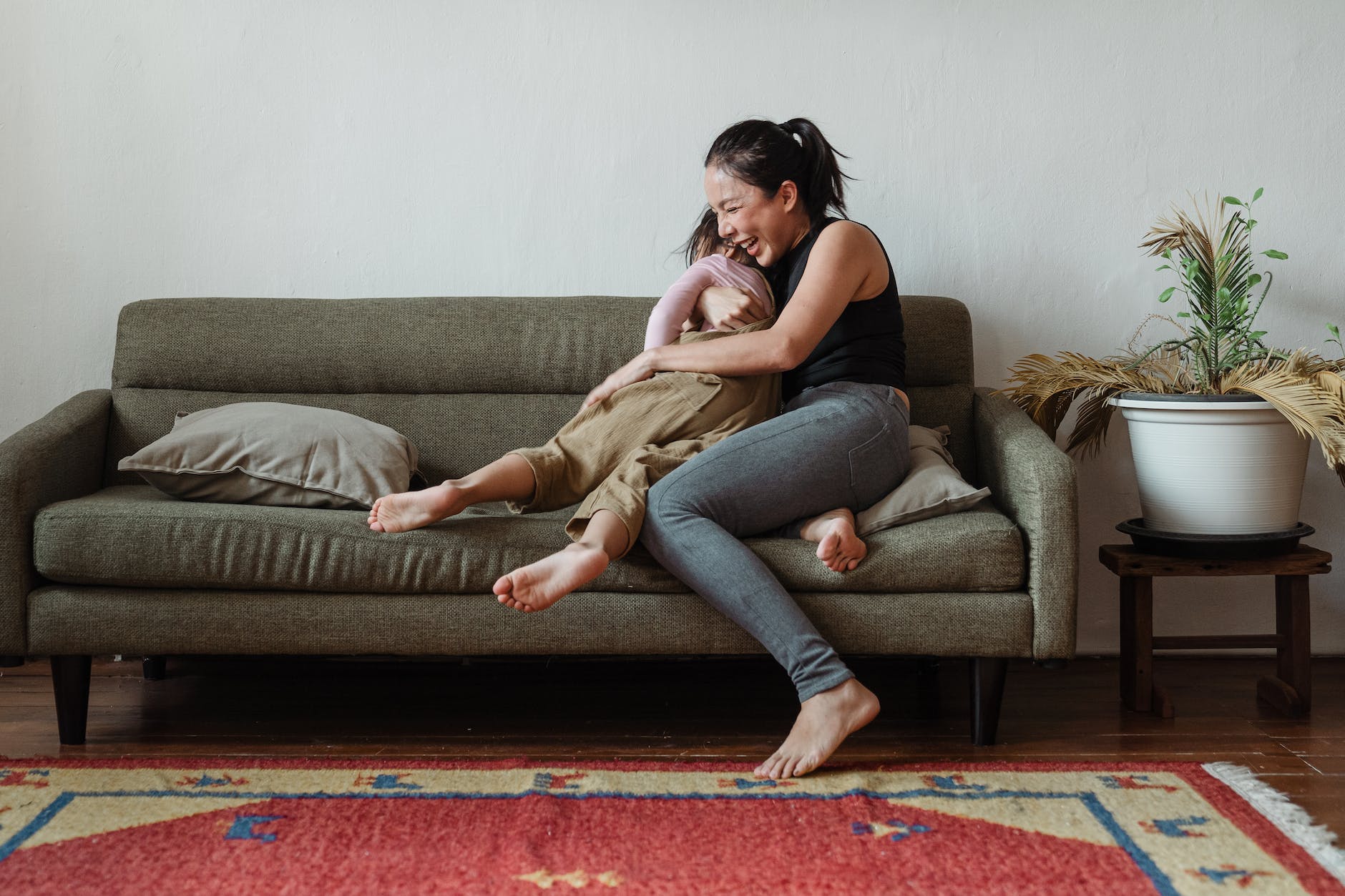How to Talk to Your Kids About Mental Health
As a health enthusiast, I understand the importance of communicating about mental health. It’s crucial that we, as parents or guardians, know how to talk to our kids about mental health. Understanding and discussing mental health matters with our children can seem daunting, but it’s a necessary conversation to have. Child Mind Institute and Young Minds are wonderful resources for this. So, how do we do this effectively? Let’s delve into it.
Understanding the Importance of Mental Health
First things first, understanding the importance of mental health is fundamental. The NHS provides excellent resources on this topic. But why does mental health matter for children? Just like physical health, mental health impacts every aspect of a child’s life from their development and learning to their relationships and resilience. Mental health isn’t something to brush aside.
How to Open the Dialogue about Mental Health
Starting a conversation about mental health with your children can seem daunting. It’s a hefty topic, isn’t it? But remember, this isn’t a one-time chat. It’s an ongoing dialogue. Heads Together is a great source of information on how to make this part of everyday conversations, rather than an out-of-the-blue discussion.
Identifying and Addressing Mental Health Issues
Next, we need to be able to identify signs of mental health issues in kids. These might include drastic changes in behaviour, mood, or eating and sleeping patterns. Spotted any of these signs? It’s time to approach your kids. And how do we do this? With gentleness, respect, and open-ended questions. Remember, it’s about them, not about you.
Signs of Mental Health Issues in Kids
Sometimes, kids don’t have the words to express what they’re feeling, making it hard to understand their emotional state. However, there are physical and behavioural signs we can look out for. These signs could include drastic changes in their mood, behaviour, eating and sleeping patterns. Some children might exhibit a sudden drop in school performance, become withdrawn, or seem excessively worried or sad. It’s important to understand that changes are a part of growing up, but significant changes could signal mental health issues. Remember, you know your child best. Trust your instincts and if you’re worried, reach out for professional advice.
How to Approach Your Kids
Identifying the problem is only half the battle; the next important step is to approach your kids about these issues. Remember, this conversation should be a two-way street. Initiate the talk in a safe and comfortable environment. Maybe during a relaxed family dinner or a casual walk in the park? Use a calm and gentle tone. And remember, open-ended questions can be a key player in this chat. Something like, “You’ve seemed a bit low recently, would you like to talk about it?” This gives them the freedom to open up about their feelings without feeling pressured. Respect their pace and privacy – this can build a solid foundation of trust.
Communicating Effectively about Mental Health
When it comes to communicating effectively about mental health, patience is the key. Active listening is critical. Mind has some helpful guides on this. You want your child to know they’re heard and understood. It’s also important to address their fears and concerns without dismissal or judgment. This way, they’ll feel safe to share more.
Tips for Successful Communication
Communication is not just about talking but also about how effectively we listen. When talking about mental health with your kids, try to use simple, clear language. Make sure they understand the words and concepts you’re using. Be open, honest, and patient. Sometimes, they may not want to talk, and that’s okay. Let them know you’re there for them when they’re ready. Most importantly, reassure them it’s perfectly okay to talk about their feelings, that everyone experiences mental health challenges, and there’s no shame in seeking help. Remember, you’re not trying to ‘fix’ them, you’re trying to support them. After all, isn’t that what we want to do as parents or caregivers?
Communicating Effectively about Mental Health
When it comes to communicating effectively about mental health, patience is the key. Active listening is critical. You want your child to know they’re heard and understood. It’s also important to address their fears and concerns without dismissal or judgment. This way, they’ll feel safe to share more.
Helping Kids Develop Mental Health Resilience
Lastly, we need to help our kids develop mental health resilience. This includes providing them with tools for building mental resilience, like teaching them coping mechanisms and encouraging positive relationships. Also, don’t overlook the role of professional help. There’s no shame in seeking out therapists or counsellors. It takes a village, after all.
Helping Kids Develop Mental Health Resilience
Resilience is a crucial part of mental health. It’s the ability to bounce back from adversities. And guess what? It’s a skill that can be taught. So, how do we equip our kids with tools for building mental resilience?
It starts with encouraging positive relationships – friendships that help them feel loved and secure. Next, teaching them coping strategies for managing stress and emotions can be immensely helpful. Physical activity is another handy tool, it’s an excellent stress reliever, plus it’s great for their overall health.
The Role of Professional Help
And finally, let’s address the elephant in the room – professional help. Seeking counselling or therapy should never be seen as a failure or a last resort. Rather, it should be viewed as a proactive step in managing mental health issues. Therapists and counsellors are trained to help children navigate their feelings and develop effective coping mechanisms. Remember, it’s not a sign of weakness to ask for help when you need it.
I hope this information proves to be beneficial in your journey of talking to your kids about mental health. Remember, your support can make a world of difference in their lives.
- Importance of Sleep for Mental and Physical Health
- Debunking the Myth: Running and Arthritis
- Food in Rainy Days
Conclusion
Talking to your kids about mental health is a crucial part of parenting. It allows us to spot early signs of distress and helps our children navigate through them. Let’s keep these conversations ongoing, patient, and respectful. Above all, remember that it’s okay to seek help, and there’s no shame in doing so. After all, it’s all about their wellbeing and future.
FAQs
1. Why is it important to talk about mental health with kids?
Because it helps in their emotional development, resilience, and overall wellbeing. It also creates an environment where they feel safe to express their feelings.
2. What are some signs of mental health issues in children?
Signs can include drastic changes in behaviour, mood, or eating and sleeping patterns, difficulty in focusing, and constant worry or anxiety.
3. How can I start a mental health conversation with my child?
Start by normalising the topic, making it part of everyday conversations. Use open-ended questions to invite them to share their feelings.
4. How can I make my child feel comfortable when talking about mental health?
Active listening, patience, and addressing their fears and concerns without dismissal or judgment can help create a comfortable environment.
5. What tools can help in building mental resilience in kids?
Tools can include teaching coping mechanisms, fostering positive relationships, and encouraging hobbies and activities that they enjoy.
6. When should I seek professional help for my child’s mental health?
If you notice severe or prolonged signs of distress and it’s impacting their daily life, it might be time to seek professional help.
7. Is it okay to seek therapy for my child?
Absolutely. Seeking professional help is a proactive step towards managing mental health issues. It’s about their wellbeing.
Popular Posts
- Trending:मुलहठी: खांसी कफ निकालने का चमत्कारिक उपायby Harendra Singh Keelka
- Trending:ChatGPT: AI बना बेवकूफ ! जानिए कैसे?by Harendra Singh Keelka
- Trending:AI Decodes Brain: Unraveling Visual Perception Mysteriesby Harendra Singh Keelka
- Trending:आलस्य से मुक्ति: सफलता की कुंजीby Harendra Singh Keelka
- Trending:Whatsapp पार्ट-टाइम नौकरियों में ठगी; Zerodha सीईओ ने खोली पोल।by Harendra Singh Keelka
- Trending:How Yoga, Meditation and Sleep Boost Well-Beingby Harendra Singh Keelka












